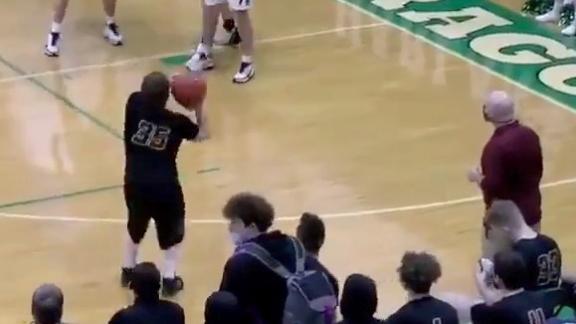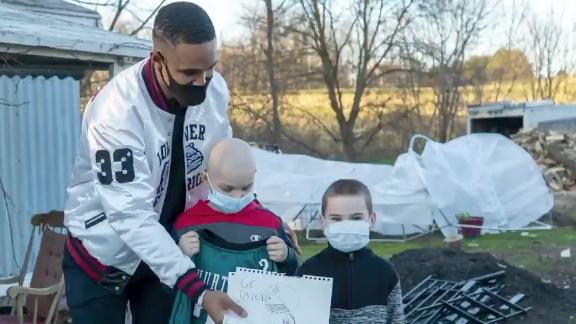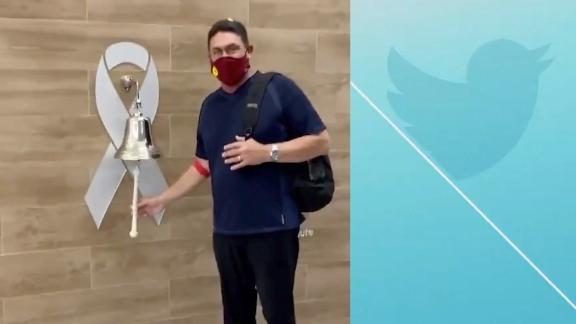Bill would ban violent fans from stadiums
-


- By Shaun Assael and Paula Lavigne | March 23, 2012 6:11:07 AM PDT
Comments
Advertisement
ESPN Video
- 00:43
High schooler with Down syndrome sinks 3-pointer
Leslie County (Ky.) High School's Ethan Wolfe, who has Down syndrome, checks into the game and knocks down a 3-pointer.
- 02:04
Hurts surprises family with donation toward a new home
Eagles QB Jalen Hurts surprises a family, whose child is battling cancer, with a $30,000 donation to go toward a new home.
- 01:25
Ron Rivera rings the bell after final day of cancer treatment
Washington coach Ron Rivera receives an ovation as he walks down the hospital hallway to ring the bell after his final day of cancer treatment.


